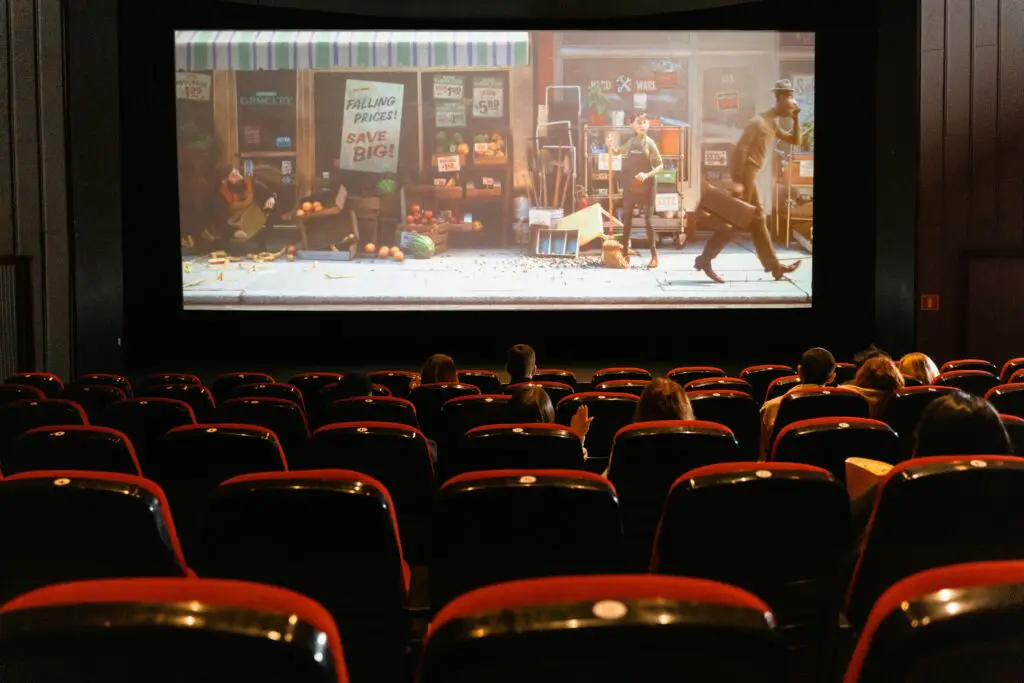1. Democracy – The Gift of Ancient Greece

When we think about democracy, we often picture modern elections, but the roots of this system stretch all the way back to ancient Greece. The Athenians developed a direct democracy where citizens (well, free men, anyway) gathered to vote on laws and policies. While today’s democracies rely on elected representatives, the core idea of people having a say in government started with these early thinkers. They even had a practice called ostracism, where they could vote to exile someone for ten years if they were seen as a threat to democracy says National Geographic Society. Imagine if we could still do that today!
Of course, their system wasn’t perfect—women, enslaved people, and non-citizens weren’t included. But the idea that government should reflect the will of the people stuck. The Romans later tweaked it into a republic, and over time, different civilizations put their own spin on it. Today, whether it’s through voting or protesting, we still carry the torch of those ancient Greeks who first fought for the right to have their voices heard adds Stanford Report.
2. The Calendar – A Gift from the Romans

Ever wonder why our year has 12 months or why February gets shortchanged? You can thank the Romans. Their original calendar was a mess, based on the moon and constantly needing adjustments. Julius Caesar finally had enough and introduced the Julian calendar, a solar-based system that set the foundation for the one we use today. It had 365 days, plus a leap year every four years to keep things aligned with the seasons says Wikipedia.
Even after the Roman Empire fell, their calendar stuck around, with some tweaks. The Catholic Church later adjusted it into the Gregorian calendar, which most of the world still follows shares Britannica. That’s why our months have their weird lengths and why we celebrate New Year’s on January 1st. So next time you check your planner, just remember—it’s a relic of an empire that crumbled long ago.
3. The Olympics – A Legacy from Ancient Greece

Every four years, the world comes together to watch athletes compete, but the tradition started over 2,700 years ago in Olympia, Greece. Back then, the games were held in honor of Zeus and featured events like wrestling, chariot racing, and a brutal version of boxing. The whole thing was a religious festival as much as a sporting event, and winners were treated like heroes. They even got statues built in their honor!
After Rome took over, the Olympics faded out and eventually disappeared in the 4th century. It wasn’t until 1896 that the modern version was revived, bringing back the spirit of international competition. Today’s games are much bigger and more commercialized, but the core idea remains the same. Athletes from around the world still gather to prove who’s the best—just like they did in ancient Greece.
4. Written Laws – Courtesy of the Babylonians

Before ancient Babylon, laws were often just whatever the local ruler decided on the spot. But then King Hammurabi came along around 1750 B.C. and said, “Let’s write this down.” He created the Code of Hammurabi, a set of laws carved into stone for everyone to see. Some of the rules were harsh—”an eye for an eye” wasn’t just a saying, it was the law. But for the first time, people knew exactly what was expected of them.
This idea of official, written laws caught on. Later civilizations, including the Romans, improved on the concept, leading to the legal systems we rely on today. Whether it’s traffic laws or contracts, the idea that rules should be clear and apply to everyone comes straight from those ancient stone tablets. We may not chisel our laws into rock anymore, but Hammurabi’s influence still shapes our justice systems.
5. Road Networks – A Roman Invention

If you’ve ever taken a road trip, you can thank the Romans. They built an extensive network of roads stretching over 250,000 miles to connect their vast empire. These weren’t just dirt paths—Roman engineers designed durable roads with layers of gravel and stone, many of which still exist today. Their famous saying, “All roads lead to Rome,” wasn’t just poetic—it was literal.
Even after the empire fell, their roads kept shaping Europe’s transportation routes. Many modern highways follow the same paths first carved out by Roman engineers. Their construction techniques also influenced how roads are built today. The next time you’re stuck in traffic, just remember—you’re following in the footsteps of Roman chariots.
6. Dentistry – A Practice from Ancient Egypt

Nobody likes going to the dentist, but the ancient Egyptians were way ahead of their time in oral care. As early as 3000 B.C., they were creating primitive toothbrushes from twigs and making toothpaste from ingredients like crushed eggshells. They even attempted early forms of dental surgery, using gold wires to stabilize loose teeth.
The practice spread to other civilizations, with the Greeks and Romans improving dental tools. While their methods were rudimentary by today’s standards, their focus on oral health laid the groundwork for modern dentistry. So next time you’re sitting in the dentist’s chair, just be glad you’re not getting a tooth pulled with ancient Egyptian pliers!
7. Theater – A Greek Invention

Whether you love Broadway musicals or a night at the movies, you’re part of a tradition that began in ancient Greece. The Greeks pioneered theater as both entertainment and social commentary, performing tragedies and comedies in open-air amphitheaters. Playwrights like Sophocles and Aristophanes created stories that are still studied today.
The Romans borrowed the concept, and theater continued evolving through the Middle Ages and the Renaissance. Today, it’s transformed into film, television, and live performances worldwide. But the core idea—telling stories to entertain and challenge audiences—remains unchanged. The next time you watch a play or a movie, you’re enjoying an art form that’s been captivating people for thousands of years.
8. Paper – A Chinese Innovation

We take paper for granted, but it was revolutionary when the Chinese invented it around 100 B.C. Before that, people wrote on bamboo, silk, or clay tablets, which were expensive and inconvenient. The Chinese developed a process using tree bark and rags to create the first true paper. This invention made writing, record-keeping, and education far more accessible.
Over time, the technology spread to the Islamic world and eventually Europe, changing how societies functioned. The printing press made paper even more essential, leading to books, newspapers, and eventually, the documents we rely on daily. Whether it’s a grocery list or a novel, every piece of paper we use is a link to an invention from an ancient civilization.
9. Banking – First Established by the Mesopotamians

The concept of banking might seem modern, but ancient Mesopotamians were lending money and recording transactions as early as 2000 B.C. Temples and palaces functioned as the first banks, storing grain and precious metals while issuing loans. They even had interest rates, proving that money problems have been around forever.
The idea spread to other civilizations, with Romans, Egyptians, and medieval merchants refining the system. Today, online banking and credit cards may feel like a far cry from sacks of grain, but the basic concept remains the same. Borrowing, lending, and keeping track of wealth all started with those ancient accountants in Mesopotamia.
10. Plumbing – A Roman Innovation

Indoor plumbing might seem like a modern convenience, but the Romans were enjoying running water over 2,000 years ago. They built extensive aqueduct systems to bring fresh water into cities, supplying public baths, fountains, and even some private homes. Wealthy Romans had heated floors and flushing toilets, proving they were ahead of their time in home comforts.
When the empire collapsed, much of this technology was lost, and people went back to throwing waste into the streets. It wasn’t until centuries later that sanitation systems caught up again. Today’s plumbing systems may be more advanced, but the core idea—piping water where it’s needed—comes straight from Roman engineering. So next time you take a shower, give a little thanks to those ancient innovators.
11. Universities – Inspired by the Islamic Golden Age

Higher education as we know it wouldn’t exist without the scholars of the Islamic Golden Age. In the 9th and 10th centuries, cities like Baghdad and Cordoba housed massive learning institutions where scholars from different cultures gathered to study. The House of Wisdom in Baghdad became a center for translating and preserving ancient Greek, Roman, and Persian knowledge.
These institutions laid the groundwork for modern universities. The idea of structured courses, degrees, and scholarly research spread to Europe, leading to the establishment of universities like Oxford and the Sorbonne. If you’ve ever pulled an all-nighter studying, you’re part of a tradition that began over a thousand years ago.
12. Perfume – A Gift from Ancient Mesopotamia

The love of smelling nice isn’t a recent trend—Mesopotamians were crafting perfumes as early as 2000 B.C. Using flowers, resins, and oils, they created scented blends for religious rituals and personal use. The Egyptians took it a step further, making perfumes a major part of their culture, even burying bottles of fragrance with their dead.
Later, the Greeks and Romans expanded the practice, and eventually, perfumes became a luxury trade across Europe and the Middle East. Today, the fragrance industry is worth billions, but its roots trace back to those ancient civilizations experimenting with scents. So every time you spritz on perfume or cologne, you’re keeping a 4,000-year-old tradition alive.
13. Fast Food – A Roman Original

Grabbing a quick meal on the go isn’t just a modern convenience—ancient Romans were already running fast-food joints over 2,000 years ago. They had street food vendors and thermopolia, which were small shops serving hot meals like bread, cheese, and stews. These spots were especially popular with working-class citizens who didn’t have kitchens at home.
Even after Rome fell, the idea of quick, affordable meals persisted. In medieval Europe, pie shops and street vendors kept the tradition going. Today’s fast-food chains may look different, but the concept remains the same—quick, accessible meals for people on the move. Next time you hit a drive-thru, just imagine ancient Romans lining up for their version of a to-go meal.
14. Weddings Rings – A Symbol from Ancient Egypt

The tradition of exchanging rings during weddings dates back over 4,000 years to ancient Egypt. Egyptians believed circles symbolized eternity, and placing a ring on the fourth finger of the left hand connected to a vein leading directly to the heart. The Romans later adopted the tradition, using iron rings to signify commitment.
As time passed, different cultures added their own customs, eventually leading to the diamond-studded rings we see today. While the materials and styles have changed, the symbolism remains the same—a never-ending bond between two people. Whether it’s gold, silver, or something unique, wedding rings continue an ancient tradition that has stood the test of time.
